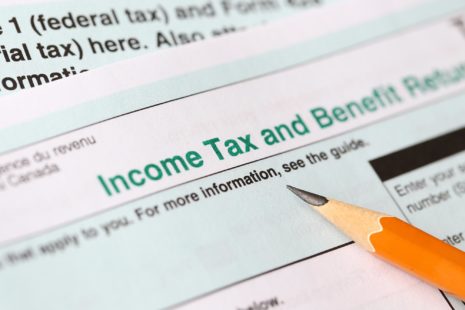October 25, 2015
Five Year-End Tax Planning Strategies
As we approach the end of 2015, investors should be aware of things they can do with their portfolios to minimize their 2015 taxes. Here are five strategies to ease the burden come tax-time:
- TFSA
2015 is the only year we know for certain that people will be allowed to contribute $10,000 to their Tax-Free Savings Account (investment income earned within a TFSA is not taxed, even when withdrawn). Prime Minster Justin Trudeau promised in the election to do away with the increased TFSA allowance, introduced by the previous government in last year’s federal budget. We don’t yet know how this rollback will be implemented (will it be simply reduced back to $5,500 in 2016? Or, will there be an adjustment to Canadians’ contribution limit for 2016 based on the amount they contributed in 2015?) But if you haven’t maximized your contribution and are able to, be sure to do this before December 31st. We will have to wait for the next Federal Budget to see how contributions will be dealt with in the coming year.
- RRIF Minimum
The 2015 Federal budget also included a provision to lower the minimum required Registered Retirement Income Fund payments for those over 65 years old. This came amid seniors’ concerns they were having to deplete their RRIFS too fast. If you don’t need the income, consider asking your financial institution to pay the new lower amount to you. If you have already taken your full minimum payment, you have the option of recontributing it to your RRIF until February 29, 2016, which would reduce your 2015 taxable income.
- Portfolio Rebalancing
Recent equity-market volatility might have shifted your asset mix. It is always important to review this regularly with your advisor, especially during volatile markets, and rebalance to return to your target asset mix if it has shifted materially. Prior to making any changes, however, you should consider if any adjustments you make will trigger taxable capital gains. If so, you may want to wait until the New Year, but you should review this with your advisor to determine whether or not this is the appropriate strategy for you.
- In-Kind Donations
After market downturns, investors often think the best thing they can do to save taxes is trigger capital losses. While this can be a strategy, you have to stay out of the security you sold for 30 days, or the loss will be deemed a “superficial loss” and can’t be used against capital gains. Note the last date to sell a security and qualify for a loss in 2015 is December 23rd (not December 31st). An alternative is to make an “in-kind donation” of some of your better-performing assets to charity. Rather than locking in a loss for a security that may be down in value perhaps only temporarily, donating some of your winners can be a good way to avoid capital gains taxes and allow the charity to easily sell the security. You also receive a tax receipt for the value of the donation. Be sure to do this sooner, rather than later, as it takes time to arrange an in-kind transfer. Contact your financial institution to arrange this.
- Avoid Year-End Capital Gain distributions with new capital
Before investing new funds into a taxable account, check with the fund company for its estimates on capital-gain distributions as well as the dates they will be paid. If you hold a fund on the date of record, you will receive (and be taxed on) the distribution, regardless of whether you participated in the gain that is being paid out. If there is a large capital gain distribution expected, you might consider waiting until after the distribution is paid to invest new funds.
Consider these simple strategies before the end of the year to help reduce your tax bill.
This article is not intended to provide advice, recommendations or offers to buy or sell any product or service. The info provided in this article is compiled from our own research and is based on assumptions that we believe to be reasonable, accurate at the time the report was written, but, is subject to change without notice.
Recent Posts
- VIDEO: Navigating Dementia: Recognize, Prepare, Plan
- New Trust Reporting Requirements Now in Effect May Catch Some by Surprise
- Leith Wheeler Explainer Series: The Dividend Debate
- Hitting Pay Dirt: The Selling of an Ag Empire
- The Risks of Transactive Memory
- Building Out Your Core with US SMID and Emerging Markets Equities
- Resources for Reconciliation - 2023
- How Could Budget 2023’s Proposed Taxation of Donated Securities Affect Not-for-Profits?
- Taming an Unintentional Portfolio
- Women, Money, and My Holiday Beach Read



